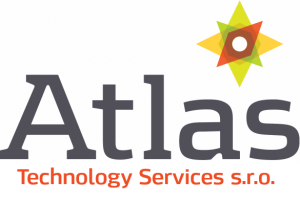How do you prepare for a role that doesn’t exist?
10.01.2018Company: McKinsey & Company, Inc. Prague
Automation is here, in fact it’s everywhere – in our homes, and in our offices! We are already feeling the effects, and are perhaps more reliant on automation than we care to think about. For example, you’re probably reading this post now because an algorithm promoted it on your news feed.
Both Stephen Hawking and Elon Musk have expressed their concerns about an overly-automated future. These stem from a ‘Terminator’ scenario where Artificial Intelligence may be able to outsmart and overpower us, threatening our entire existence (in fact, you can study this at Cambridge University). However, we must recognise that automation already offers positive solutions that have significantly improved our quality of life; from detecting disease and performing complex operations to conducting dangerous tasks in hazardous environments and making our communities safer.
Another benefit is productivity. Machines are more effective, accurate and economical at certain tasks. Their adoption often improves performance, reduces risk and increases margins – all of which contribute to GDP growth. This was a hot topic at November’s Centre for London Conference, where we continued discussions on productivity being key to future growth of the UK economy, and generally to the success of any business. So, should we be calling up the technology companies and asking for their best machines ASAP? Perhaps, but first we must consider the impact this will have on our people. This isn’t the first time that technology has caused a shift in employment, and history shows it creates more jobs than it destroys. Both the agriculture and manufacturing industries have undergone monumental change, and personal computers have created around 15.8 million new jobs in the US since 1980.
This time the shift is on a bigger scale, ranging across almost all industries, and takes place in a shorter period of time. In their Jobs Lost, Jobs Gained report, McKinsey Global Institute predicts the coming wave of automation could displace up to 30% of work globally by 2030, either replacing roles entirely or in parts. Up to 375 million people may need to shift occupation, either to current roles in growing sectors such as healthcare and energy, or to new roles that don’t yet exist in emerging sectors such as technology.
These are big numbers, but we must remember that ‘technology destroys jobs, not work’. Our challenge is to understand how we can transition our workforce of today to the workplace of the future. We all have a role to play in preparing ourselves for the impact of automation, from policy makers and employers, to individuals – and we need to act now. Research and history give us confidence that new roles will be created, but we must be well prepared to manage the disruption that will hit in the short term. Here are some ways to pave a smoother path:
- Create new roles: Identify the growth opportunities in economies and the resulting roles that will be in high demand. While almost all jobs will have some automation, there will be a greater demand for more social, emotional, creative and complex cognitive skills, all which are relatively hard to automate.
- Build relevant skills: Offer the right re-training solutions and opportunities to develop careers further, or explore new directions, based on local market needs. For example, Generation, the first programme of McKinsey Social Initiative, helps unemployed youths build the right skills for the high-growth sectors in their local economies. I’m very proud that this is now launching in the UK.
- Put people first: Alongside proactive skills development, provide income support for displaced workers while they find new employment. This will help to mitigate potential income polarisation and frictional unemployment in advanced economies.
- Get the timing right: While automation can be revolutionary, our species is evolutionary. Integrating technology needs to happen at the right pace to ensure workforces proactively adopt a new way of working, not just react to its disruption.
Acknowledging this new wave of work and making the right preparations will be key to a smooth transition, increased productivity, and growth. The best response to automation “is not to hold the machines back; it is to help the humans jump aboard”.
----------
Vivian Hunt is the Managing Partner for McKinsey & Company in the United Kingdom and Ireland. She advises leading British and global organisations on a broad range of strategy topics and is an expert on leadership and global talent.
Tags: Business Development | IT |







